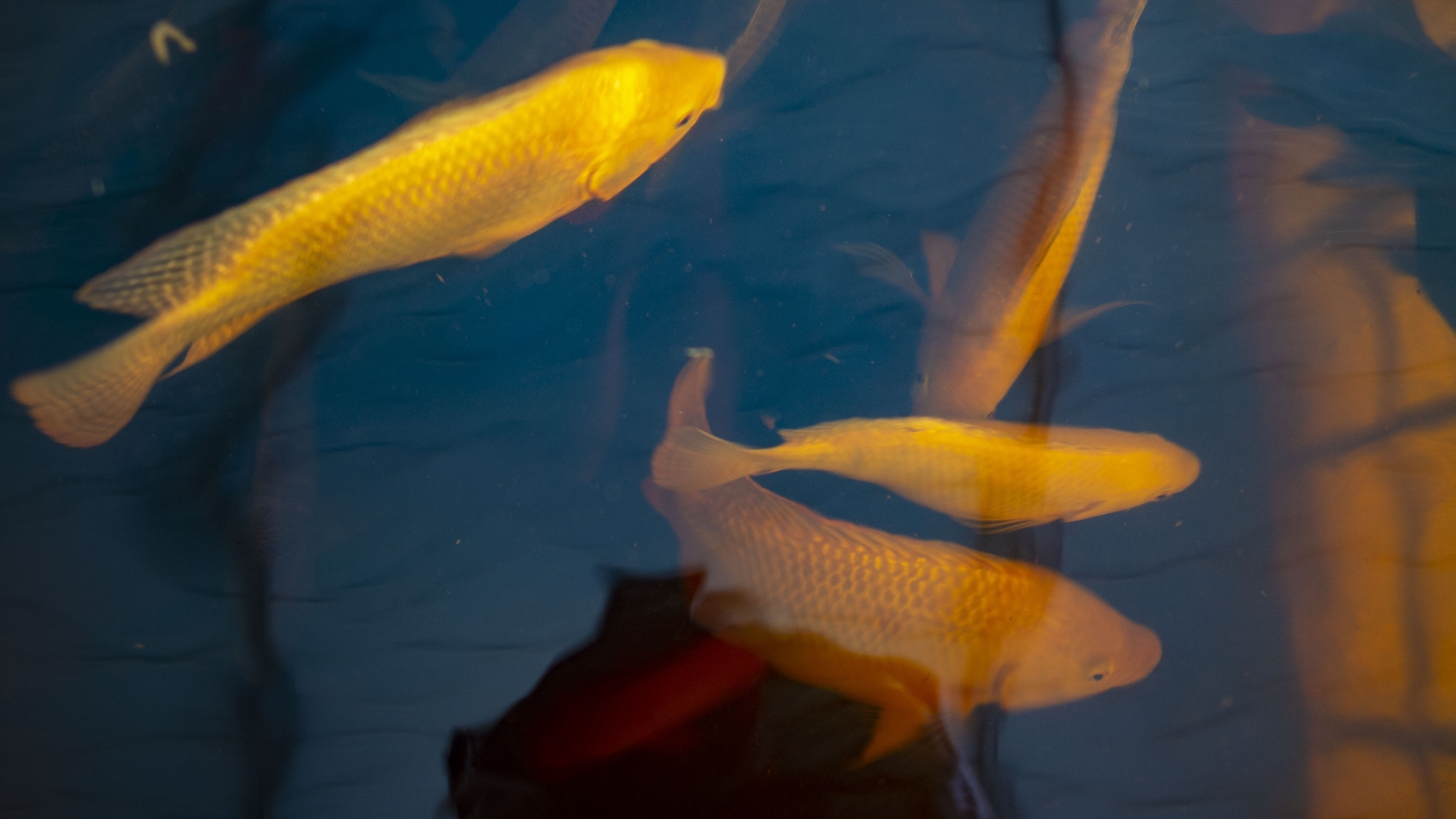Tilapia Lake Virus

Tilapia lake virus (TiLV) is a serious disease of farmed and wild tilapia that causes high mortality in infected fish. APHIS works with fish health partners to protect U.S. tilapia producers and growers from TiLV.
The first-ever detection of TiLV in the United States happened in 2019 in three tilapia aquaculture facilities in Idaho, Wyoming, and Colorado. APHIS worked with the States and facility owners to quickly contain and eradicate TiLV.
While TiLV is not present in the United States, it is an emerging disease internationally. APHIS has trade restrictions in place to protect the U.S. tilapia industry from TiLV.
TiLV-infected fish may show one or more of the following symptoms:
- Loss of appetite
- Abdominal swelling
- Black discoloration
- Skin abrasions
- Ocular degeneration
- Bulging eyes
- Renal congestion
- Scale protrusion
- Pallor
TiLV survives in both fresh and brackish water and can transmit to tilapia through the water. Fish-to-fish contact is another way TiLV spreads between fish.
Biosecurity and good husbandry help stop the introduction and spread of TiLV. If you're a tilapia producer, here's what you can do:
- Purchase live fish and germplasm from TiLV-free sources.
- Quarantine and monitor all new fish stocks.
- Disinfect and properly dispose of water used to transport live fish.
- Clean and disinfect pools and equipment regularly.
There is no treatment for TiLV.
Report Signs of Animal Disease
Producers or owners who suspect an animal disease should contact their veterinarian to evaluate the animal or herd. Find an accredited veterinarian.
Animal health professionals (veterinarians; diagnostic laboratories; public health, zoo, or wildlife personnel; and others) report diagnosed or suspected cases of nationally listed reportable animal diseases to APHIS District Offices and to the State animal health official as applicable under State reporting regulations.
Controlling Tilapia Lake Virus
TiLV is not present in the United States. The only detection of TiLV in the United States took place in 2019. APHIS quickly contained and eradicated that outbreak.
TiLV testing is conducted in the United States by several laboratories.
Contact your State or local aquatic animal health laboratory to see if they can test for TiLV before sending samples.
APHIS restricts the import (1.45 MB) of all live fish, fertilized eggs, and gametes from TiLV-susceptible species. These imports must meet U.S. import requirements, including being accompanied by a USDA import permit, an official health certificate, and veterinary inspection. Learn more about these restrictions.
- Assessment of the Risk of Introduction of Tilapia Lake Virus (TiLV) by Live Tilapia Imported to Terminal Markets (269.51 KB)(November 2020)
- Analysis of U.S. Imports/Exports of Live Tilapia and Eggs/Milt (318.38 KB)(January 2020)

